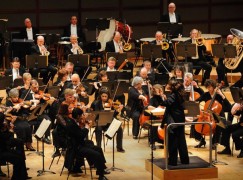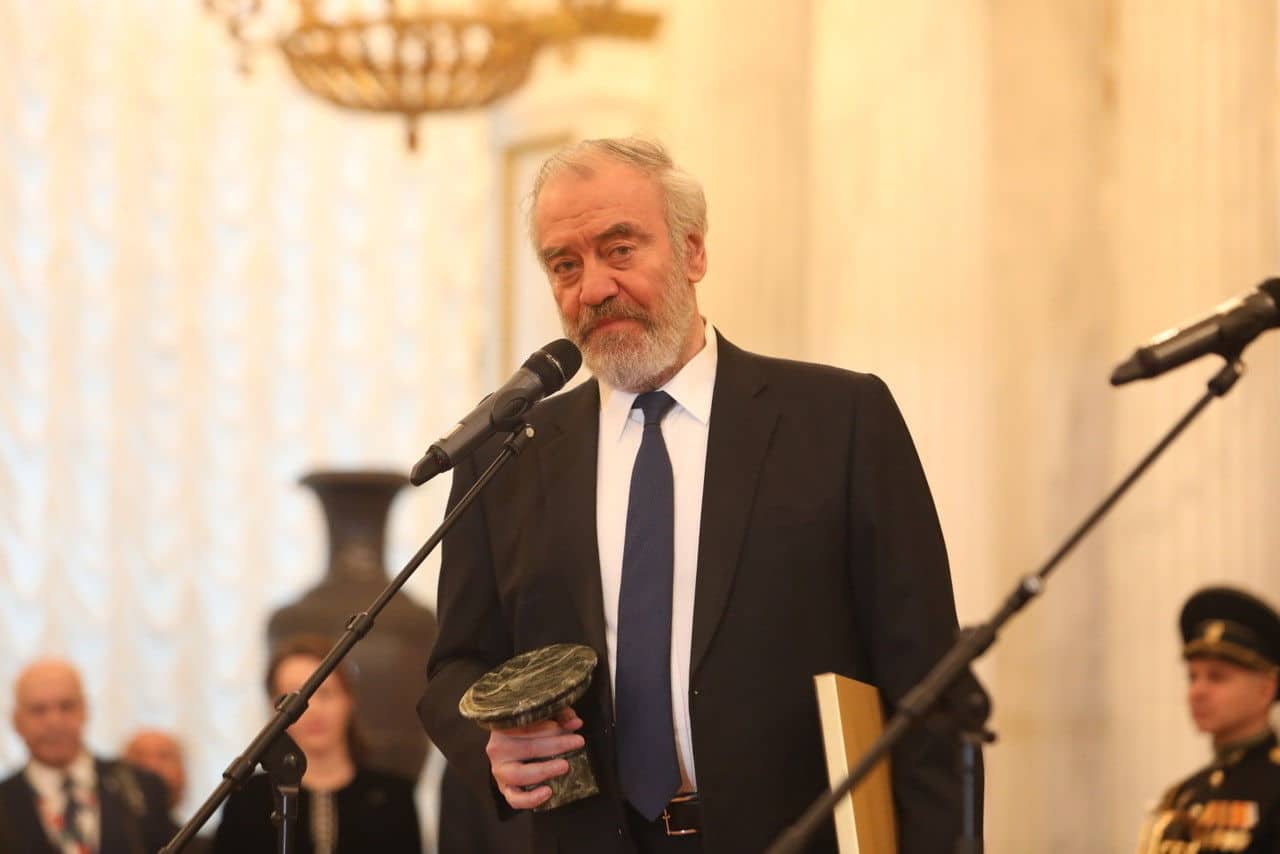‘Let’s flood DC with orchestras’
mainA plan was announced today at the League of American Orchestras convention to saturate the nation’s capital for a week with orchestral activity. Organisers of the ‘immersive’ festival, known as Shift, have made a surprise selection of four ensembles to spearhead the assault. This is one fine day for North Carolina. Press release below.

(WASHINGTON)—The John F. Kennedy Center for the Performing Arts and Washington Performing Arts today announced the four North American orchestras selected to participate in the first year of the new weeklong SHIFT Festival, taking place at the Kennedy Center March 27 through April 2, 2017. Chosen from a pool of exceptional submissions from orchestras across North America, the selected orchestras include: Boulder Philharmonic (March 28), North Carolina Symphony (March 29), Atlanta Symphony Orchestra(March 31), and Brooklyn-based ensemble, The Knights (April 1). Collectively, the participating orchestras will offer repertoire by nine living composers, two world premieres, and numerous D.C.-area premieres during the festival, inspired by themes of nature, Americana, creation and creativity, and choral influences.
SHIFT: A Festival of American Orchestras is a weeklong spotlight on North American orchestras of all sizes that celebrates the vitality, unique identity, and extraordinary artistry of orchestras by creating an immersive festival experience in the nation’s capital. It is the first significant collaboration between the Kennedy Center and Washington Performing Arts in their shared history. The Andrew W. Mellon Foundation has awarded a $900,000 grant for the collaboration, of which $700,000 will be leveraged as matching funds for new gifts to support the program. Kennedy Center President Deborah Rutter and Washington Performing Arts President & CEO Jenny Bilfield made the announcement this afternoon in Cleveland at the League of American Orchestras’ annual conference





By nine living composers, I hope they are not referring to Lady Gaga, Coldplay, The Who or other ‘classical music’ orchestras nowadays play….
The composers to be played are Christopher Theofanidis, Mason Bates, Caroline Shaw, Robert Ward, Sarah Kirkland Snider, Stephen Lias, Jeff Midkiff,Steve Heitzeg, Aaron Copland, Lisa Bielawa and Aaron Jay Kernis. So serious music with a variety of styles, no Lady Gaga and nothing to weep about.
It’s great that they are doing new music, but a new music festival does not hide the fundamental problems with arts support in the USA.. (See my posts below for examples.) In fact, the idea of arts organizations using new music to create a kind of artificial profile to disguise a general cultural poverty has long been practiced by the American opera world. The idea of doing a new opera each season was established in the 50s by Santa Fe Opera and brought it much notoriety for its small 6 to 8 week season. This became a model for many American opera companies, almost all of which have similar limited resourses. The support of new music is noble, but one must also see through the smoke screen the practice is sometimes used to create. Whether intended or not, this festival in Washington falls into that pattern. Lots of hupla over 4 days, and little long-term substance.
Funding, and therefore the political targets, is at the *state* level in the United States, like education.
LAO people know this! Going after Washington, DC, will accomplish nothing, not even gaining much publicity. It is just to make them feel productive and “national.”
Lobby where it makes a difference, please.
We see here the usual folly of changing the package, but not the contents. The results are inevitably superficial. And of course, four orchestras, three of which are very provincial, is not a flood. Sort of like saying the National Opera with its six week season is world class. Ha!
To create true change, we would need several world class orchestras, including some from Europe, presenting innovative programs, combined with a widely publicized message to congress that the USA needs a public funding system for the arts like all other developed countries have long had. Something tells me our Koch Brothers & Co. Arts Donors aren’t going to fund that message.
So instead we will have the Boulder Symphony offering outdoor concerts with orchestra members giving nature walks. Maybe they can play some John Denver and in the spirit of Colorado distribute some joints. We must face these realities, even if one feels a combination of pity and embarrassment…
It does look a little underwhelming, though the concept of an orchestra blitz has possibilities.
And William, Slipped Disk’s cultural oracle, looked down his nose and went “Sniff sniff sniff. . . . “
It’s more like weep, weep, weep…
Your post is filled with put-downs of what look like innovative programming ideas by regional orchestras. If classical music is going to survive in the years ahead, it will need to thrive in areas outside the sacred five or six big arts magnets around the country.
Your comments about Colorado are rather laughable and unrepresentative of the cultural scene here. (see Aspen Festival, Bravo Vail Music Festival, Central City Opera, Colorado Symphony, Colorado Music Festival, Takacs Quartet, for starters)
The ‘sniffing’ I referred to in my post had to do with your condescension, nothing about weeping.
Oh, and it’s Boulder Philharmonic, not Symphony. Why not come up to see and hear their staged St. Matthew Passion next June?
America will not solve its massive problems with arts support until people stop rationalizations such as yours. Washington is a striking example of the problems our private funding system causes, especially if compared to other national capitals.
The opera house at Kennedy Center was built over 40 years ago, but Washington still ranks a disgraceful 154th in the world for opera performances per year (while having the world’s 11th largest metro GDP.)
Look at the rankings for opera performances per year for a few other capital cities, all listed on the website of Operabase:
Berlin 1
Vienna 2
Moscow 3
London 4
Budapest 6
Paris 7
Prague 8
Madrid 13
Stockholm 15
Sydney 22
Even Athens in impoverished Greece comes in at 37th.
Then rinky-dink Washington limps in at 154th. Our so-called National Opera housed in Kennedy Center is in reality our national joke. These disgraceful numbers exist because of our dysfunctional system of funding the arts by donations from the wealthy. The USA is the only developed country in the world without a comprehensive system of public arts funding. We can’t face these truths, so we call a water glass a flood. With such delusions, people ignore the need for change.
You are rather unfair to the Boulder Philharmonic, which has a terrific record of playing interesting, non-mainstream repertoire and new compositions, while building their audience from season to season. They are the top full-season orchestra in Boulder, which boasts no fewer than 5 orchestras during the main season, plus the excellent Colorado Music Festival orchestra in the summer. Before throwing around silly insults about John Denver and marijuana, please get some facts. We reject your pity and feel no embarrassment about our musical and cultural life.
Where on earth do you see an insult? Get new glasses, and some thicker skin.
Yeah, someone who can’t even be bothered to get the name right saying “Maybe they can play some John Denver and . . . distribute some joints” is a pretty insulting judgment on the quality of an orchestra he has not heard, and the audience in Boulder that supports that orchestra. Although it is true that in this particular arena, snide dismissals are common enough to go unnoticed. The point seems to be, “I am so cultured that only ‘world-class’ ensembles deserve MY attention.” Well, there would be no “world-class” orchestras without the whole structure of “provincial” orchestras that Mr. Osborne disdains.
If I may, the overall point about raising the expectations for the arts in the US could easily be made without being so dismissive of the hardworking musicians who have been selected for this particular festival, the point of which seems to be to celebrate the good work being down outside of the major cities and ensembles. These people are my friends, they are professionals, and they deserve better.
At this point, I invite you to engage with the substance of my remarks, and not nitpick the words chosen. Who cares if its’s an insult, a snide dismissal, or a passive criticism. Instead of that kind of rhetorical argument, let’s talk about the reason for the festival and the honor that has been bestowed on several “provincial” (or regional, or backwoods, or whatever you want to call them) ensembles. In my experience, people who nitpick comments they don’t like often do so because they don’t WANT to engage the substance of the discussion.